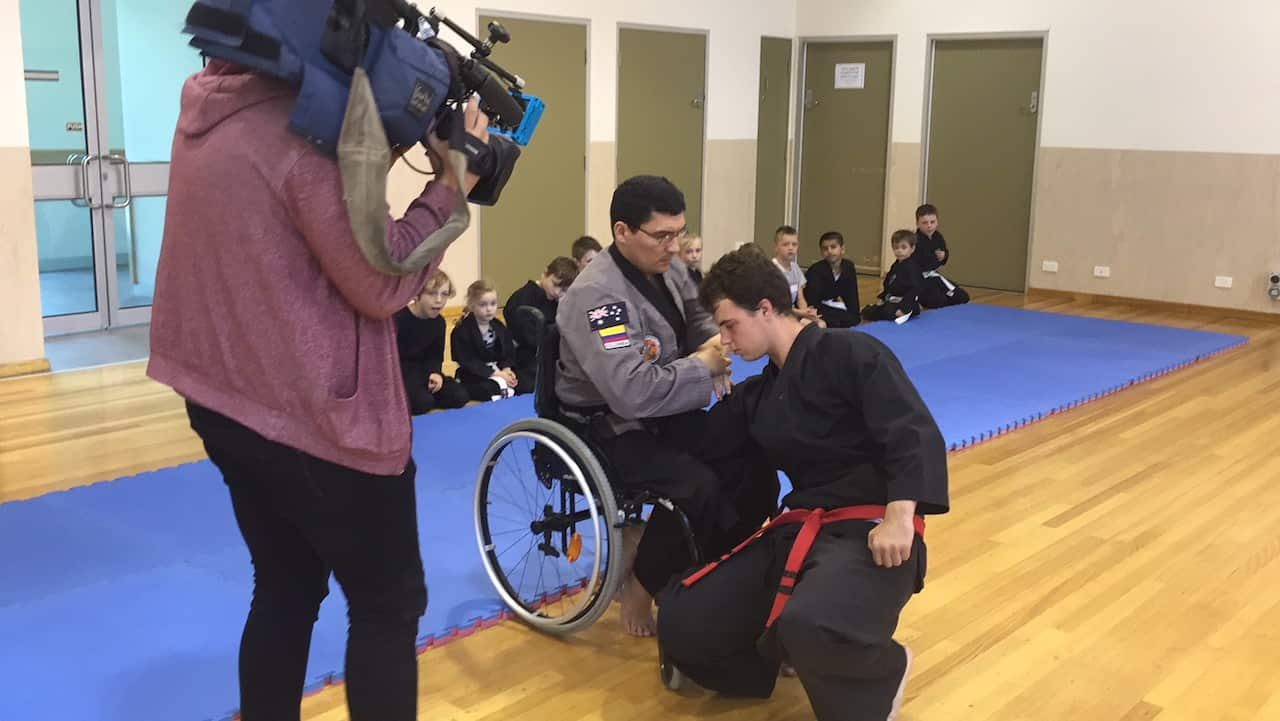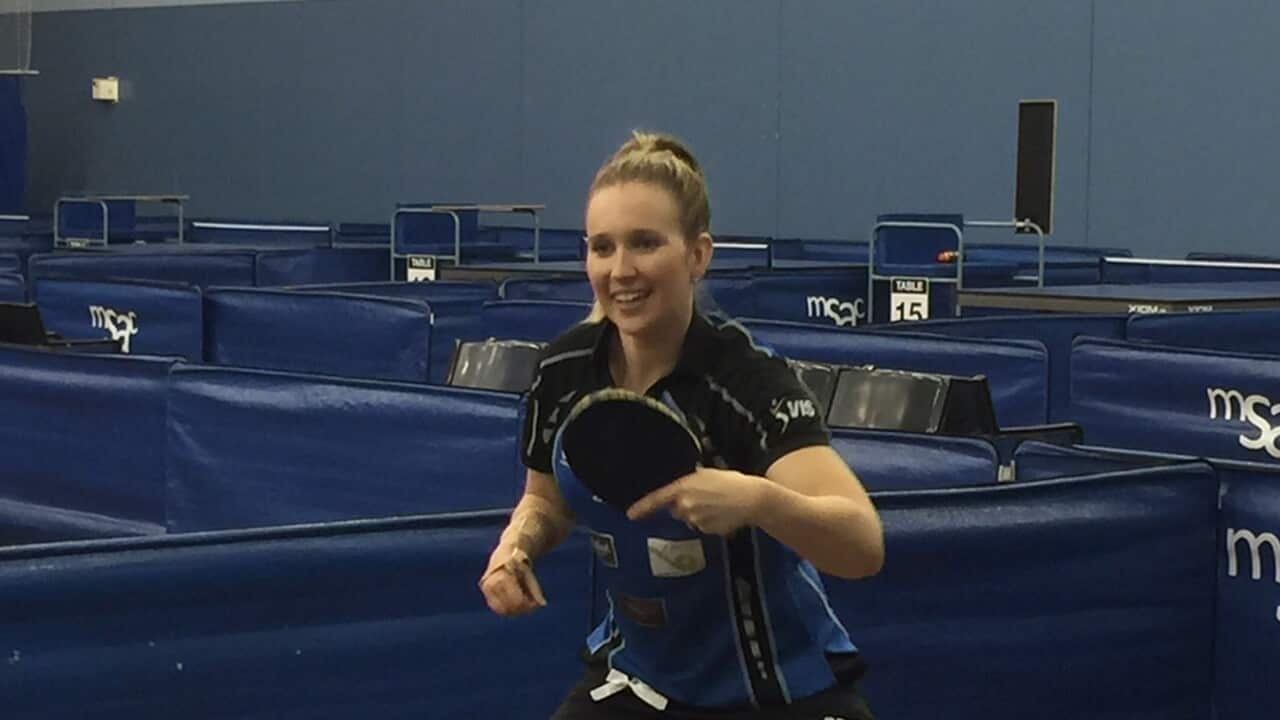Three years ago Eduardo Salazar began life in a wheelchair, but he's not willing to be pushed around.
A fourth dan Hapkido black belt, the current world champion and devotee of martial arts for over 30 years, Salazar's life changed in an instant while riding his motorbike in his homeland of Colombia when he was rammed by a car.
The accident broke his spine but never his spirit, even when doctors delivered the news that he would never walk again.
"The doctors say you can't move again, you spend all the time in bed, you have lost everything. But I say no," he said. Refusing to dwell on what he couldn't do, Salazar put his focus into what he could do.
Refusing to dwell on what he couldn't do, Salazar put his focus into what he could do.

Eduardo Salazar's motorbike accident in 2014. Source: Supplied
Several months in rehab, the 40-year-old worked his upper body and learned how to use his wheelchair in martial arts practice.
Just two years later, he claimed the Hapkido Open World Champion title in Brazil over his able bodied competitors.
"When I become world champion I say, 'yes, now I am a good example for people and I can help'." So he moved to Australia in 2015 to establish his own Hapkido dojo, and began passing on his life's work.
So he moved to Australia in 2015 to establish his own Hapkido dojo, and began passing on his life's work.

Hapkido World Champion 2016 Source: Supplied
Salazar runs classes two days a week in Melbourne's western suburbs for students of all ages.
However he said the chair can cause some confusion for new students.
"Sometimes people arrive here and ask about class," he said. "And when the people look at my belt, they ask, 'you are the master?' and I say 'yes, I am the master'."
He also holds specialist clinics for those like himself in a wheelchair. Salazar said as Hapkido relies on technique, not strength, it's the perfect form of self defence for people with a disability.
Salazar said as Hapkido relies on technique, not strength, it's the perfect form of self defence for people with a disability.

Eduardo Salazar runs a weapons session. Source: SBS
"When you have strong mind you can achieve everything," he said. "With practice you gain an understanding, and it's in this moment you realise that you can achieve everything."
His next goal is to establish an Australian Hapkido federation, and continue to inspire the next generation of Hapkido masters, like 10-year-old student Eric Falconer.
"It's more about up here (in your head), you have to concentrate. You can do whatever you want and achieve your goal if you work at it," Eric said. While for yellow-belt Michelle Paschkow, the practice has been life changing.
While for yellow-belt Michelle Paschkow, the practice has been life changing.

Eduardo Salazar demonstrates self defence. Source: SBS
Recruited to the dojo after meeting Salazar on a train, she said she never thought she was strong enough to practice martial arts.
"Practices like Hapkido you don't have to be very strong it's all about technique so it's suitable for everyone. It's changed everything for me," she said.
WATCH: Opening up adventure activities for people with disabilities



